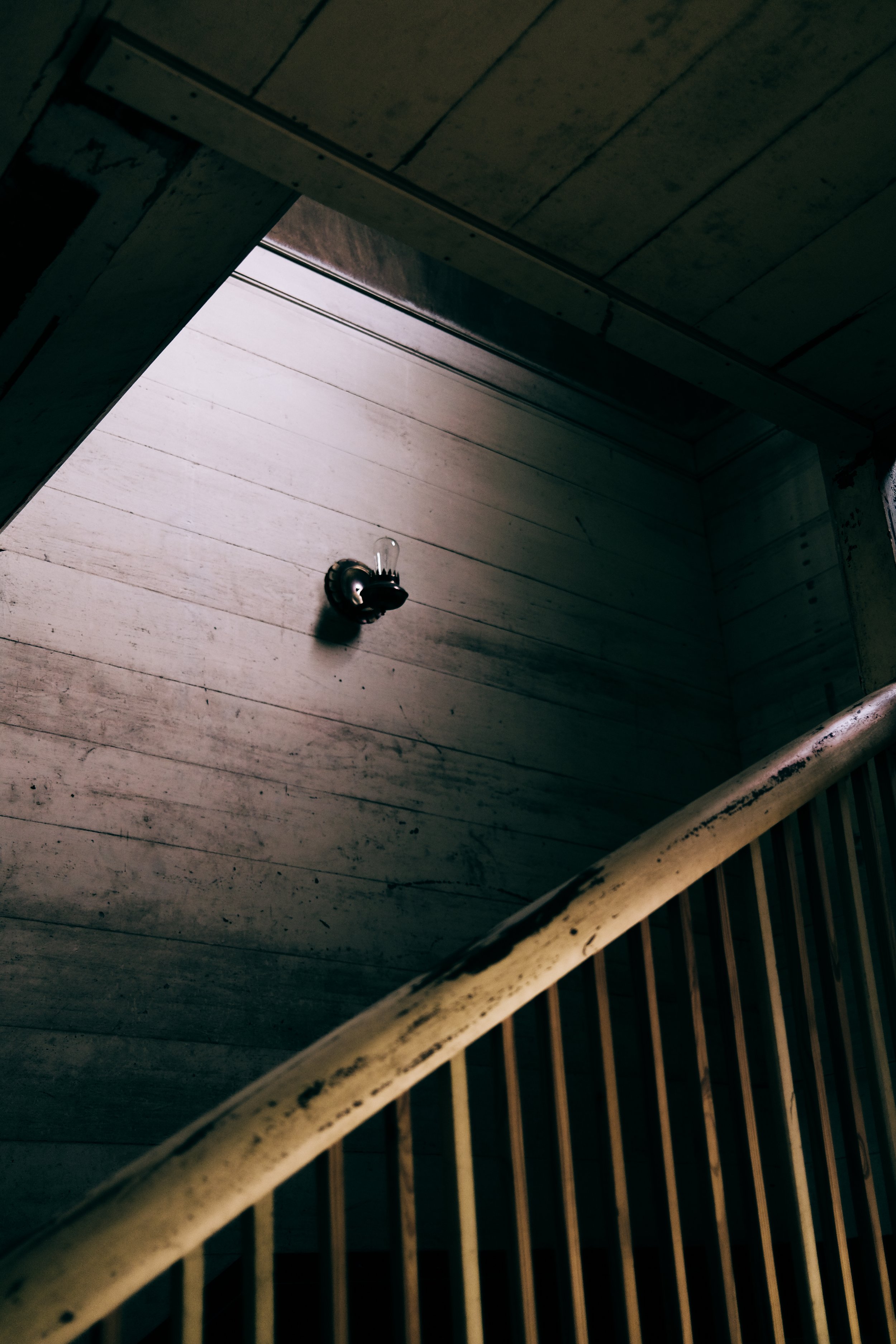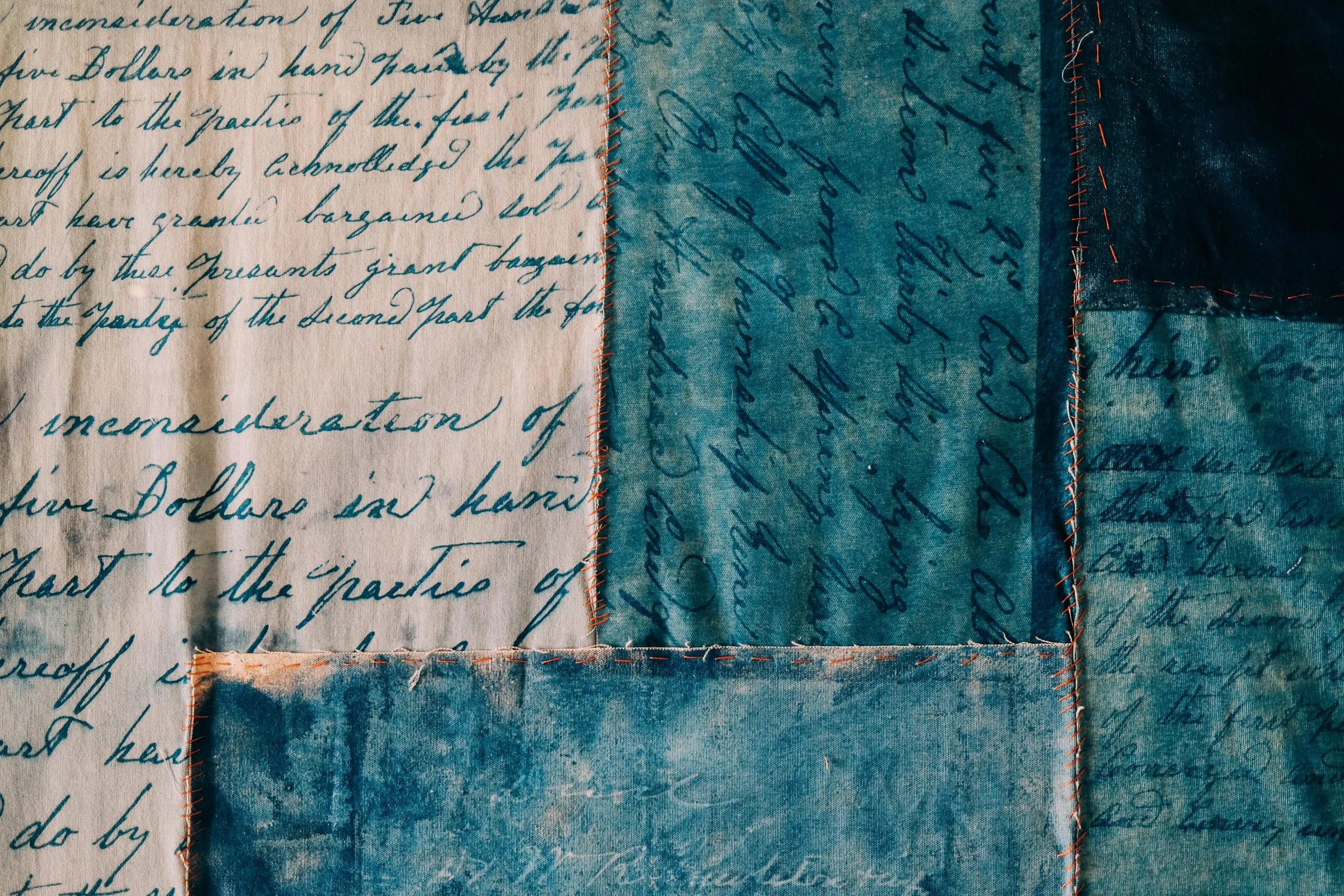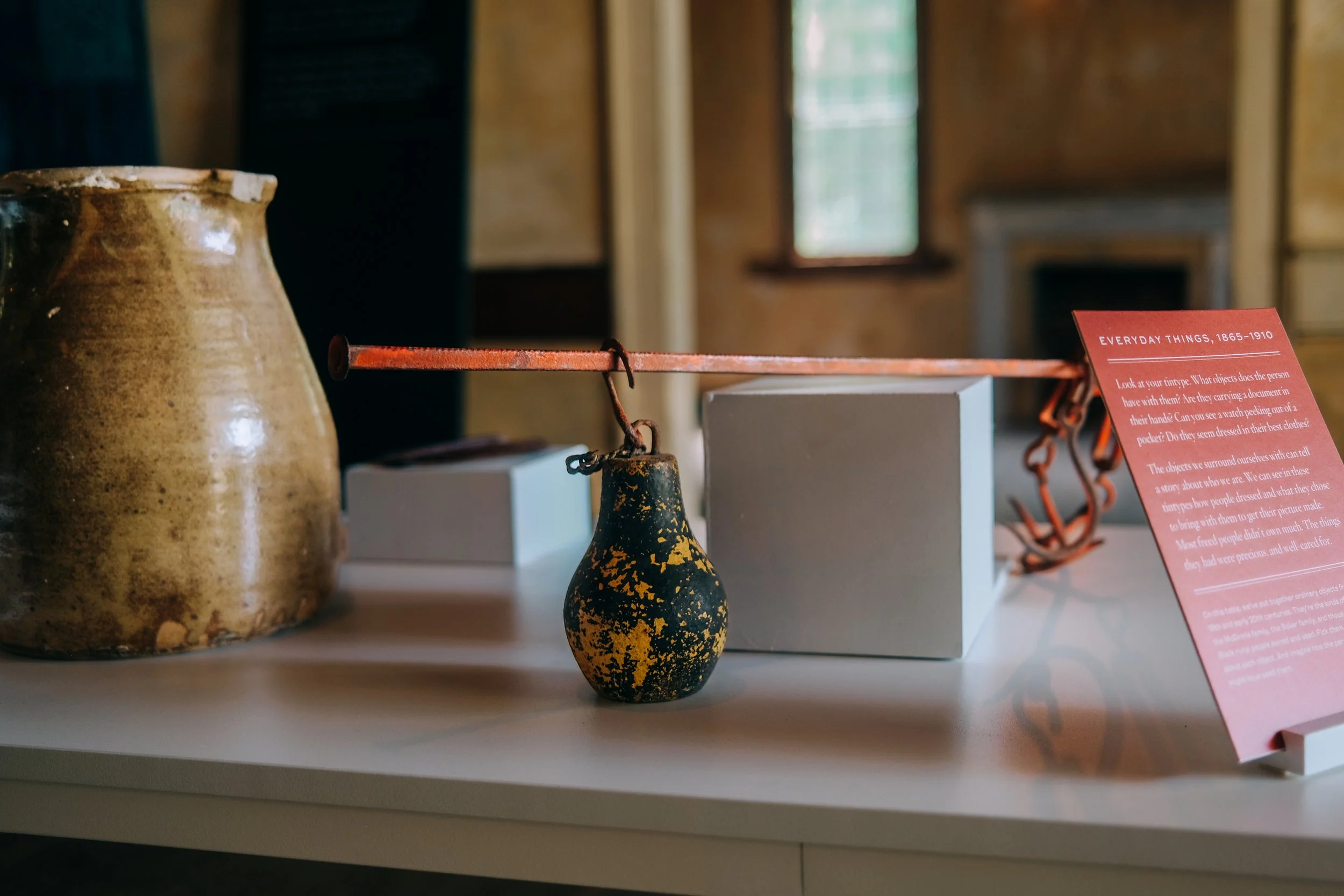Wallace Center for Arts & Reconciliation

Antebellum house museums across the South are often decorated in the romanticism of the “Lost Cause” without honestly confronting their legacies of racial violence.
But in Harpersville, a rural community in Alabama, a plantation from 1841 is becoming a site for reparative history through the arts, led by a joint effort between the white and Black descendant communities.
In the early years of the non-profit organization, 1504 began by conducting research with local residents as well as scholars to map out narrative and experiential possibilities.
Over time, this collaboration has expanded, and 1504 has hosted community workshops, curated exhibits, and assisted academic researchers to support the initial chapter of a transformative story with national relevance.
Case Studies
“The Praise House”
Through funding from the Warhol Foundation, 1504 produced a short documentary following the artist Tony M. Bingham as he creates the first site-specific sculpture at the former plantation in honor of local families and, specifically, the Black church. Beyond documentation, 1504 served as the project manager for the sculpture during its final implementation—from material sourcing to its opening ceremony with descendants. Featured by NPR.
Narrative Interpretation
As the Wallace Center prepares to host visiting students and the growing number of travelers to civil rights heritage sites, 1504 was commissioned through foundation grants to develop an arts-based experiential interpretation plan. Rather than creating a traditional museum or exhibition, the goal was to explore more participatory and contemplative forms of site activation in efforts to de-center the house itself while showcasing the lived experiences of the descendant community today.
“Out of Whole Cloth” Exhibit
Produced in collaboration with Auburn University, this immersive exhibit traces the post-Emancipation journeys of three Black families rooted in the Wallace Plantation. Visitors engage with recreated tintype postcards and stitched cyanotype cloths inscribed with historic land deeds—artifacts that bring to life how freedom and home were built through resilience. Featured on CNN’s First of All with Victor Blackwell.
GALLERY

The centerpiece of the Praise House is a metal screen that casts shadows onto broken marble slabs, revealing a historic photo of congregants from a nearby Black church that burned in the 1960s.



“Vessels for Aunt Daisy” was an installation that 1504 produced featuring artifacts from Daisy O’Neal, who was born in 1881 as the child of a woman who had been enslaved by Samuel Wallace. Today, Daisy’s grandson, Peter Datcher, is a local genealogist and one of the founders of the Wallace Center.

Rooms inside the house are intentionally left bare, revealing layers of history from plantation-themed wallpaper to Sylacauga marble fireplaces.

Tony arranges his pinhole camera, made with wood fragments reclaimed from the house, to capture haunting exposures of the facade.

During a workshop on narrative placemaking, 1504 hosted a local labyrinth facilitator who invited participants to find moments for contemplative reflection within the house.


The Baker Family land deed from 1879 was made into a cyanotype and stitched together using fabric from Project Threadways.
In conversation
It’s a privilege to be in a place where my ancestors would not have had the freedom to take a room and transform it into this art space. And so I take that responsibility, of being in this space in this time, very seriously to make stories that somehow connect to their history and experience.
— Tony M. Bingham, SouthArts Fellow for Visual Arts





